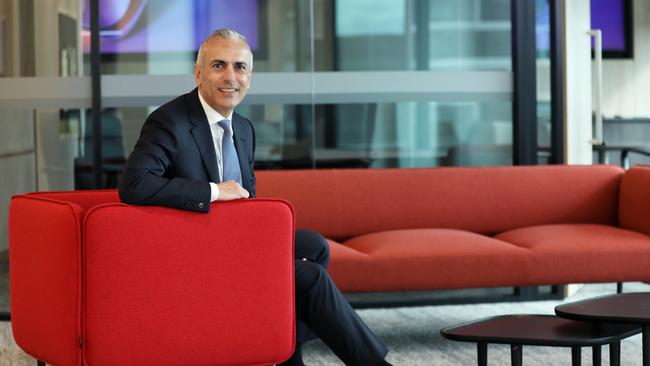
David Di Pilla’s move to offload his debt in Healthscope this week is likely linked to the view of the HMC Capital boss that the loans to the country’s second-largest private hospital operator are about to get far cheaper.
HMC Capital bought debt at about 40c in the dollar, but with it becoming clear that possible operators of its hospitals will all need a rent cut to make taking on the assets stack up, the expectations are it now sells for far less.
One view is that HMC may buy back into the debt at a cheaper price later down the track, but others take the position that gaining control of the hospital operator will now not change the outcome, in that all stakeholders, including lenders, landlords – of which HMC’s satellite fund is a major one – and health insurers will need to take a haircut.
As earlier reported by this column, hospital operators such as St John of God, St Vincent’s and Epworth Hospital Group want to cherry pick the hospitals they are happy to pick up, but market experts say that the portfolio of 37 facilities comes with a long tail of lesser quality and unprofitable hospitals that would likely need to be shut.
The closure of some facilities would likely be seen as a positive by health insurers, which have been keen for fewer but better quality hospitals and operators in the industry.
Ramsay Health Care is looking on, but selecting the best hospitals to take on could be a big problem from the perspective of gaining clearance from the Australian Competition & Consumer Commission.
Melbourne’s Knox Private Hospital and Sydney’s Prince of Wales Private Hospital are among assets that the competition watchdog made Ramsay sell when it bought Mayne Health’s hospitals in 2003, bought by the company that is now Healthscope.
Ramsay also has a heavy presence on the Gold Coast, where one of Healthscope’s better assets, Gold Coast Private, is located.
The competition watchdog can allow a deal that would otherwise be blocked if the alternative is asset closure, but there are other operators that would be keen to take on some of the best hospitals, like St Vincent’s.
Healthscope also manages third-party hospitals, and it’s likely that the decision by its lenders not to formally put the business into receivership or administration was because such a move would automatically terminate profitable contracts.
Any groups looking to secure Healthscope hospitals would likely be doing so in an arrangement where they effectively just take the keys, rather than paying to attribute value to the business.
Healthscope’s owner, Brookfield owes $1.4bn to about 20 lenders after buying the business for $4.4bn and selling its properties for about $2bn and has defaulted on rent and debt payments amid higher industry costs and has claimed reimbursement by health insurers needed to be more.
Among recent buyers of debt at less than 50c are Canyon Partners, Elliott Management and Polus Capital.
Expectations are that other lenders will sell, and a private equity firm like Bain Capital will recapitalise the business after securing the debt at a discount.




To join the conversation, please log in. Don't have an account? Register
Join the conversation, you are commenting as Logout